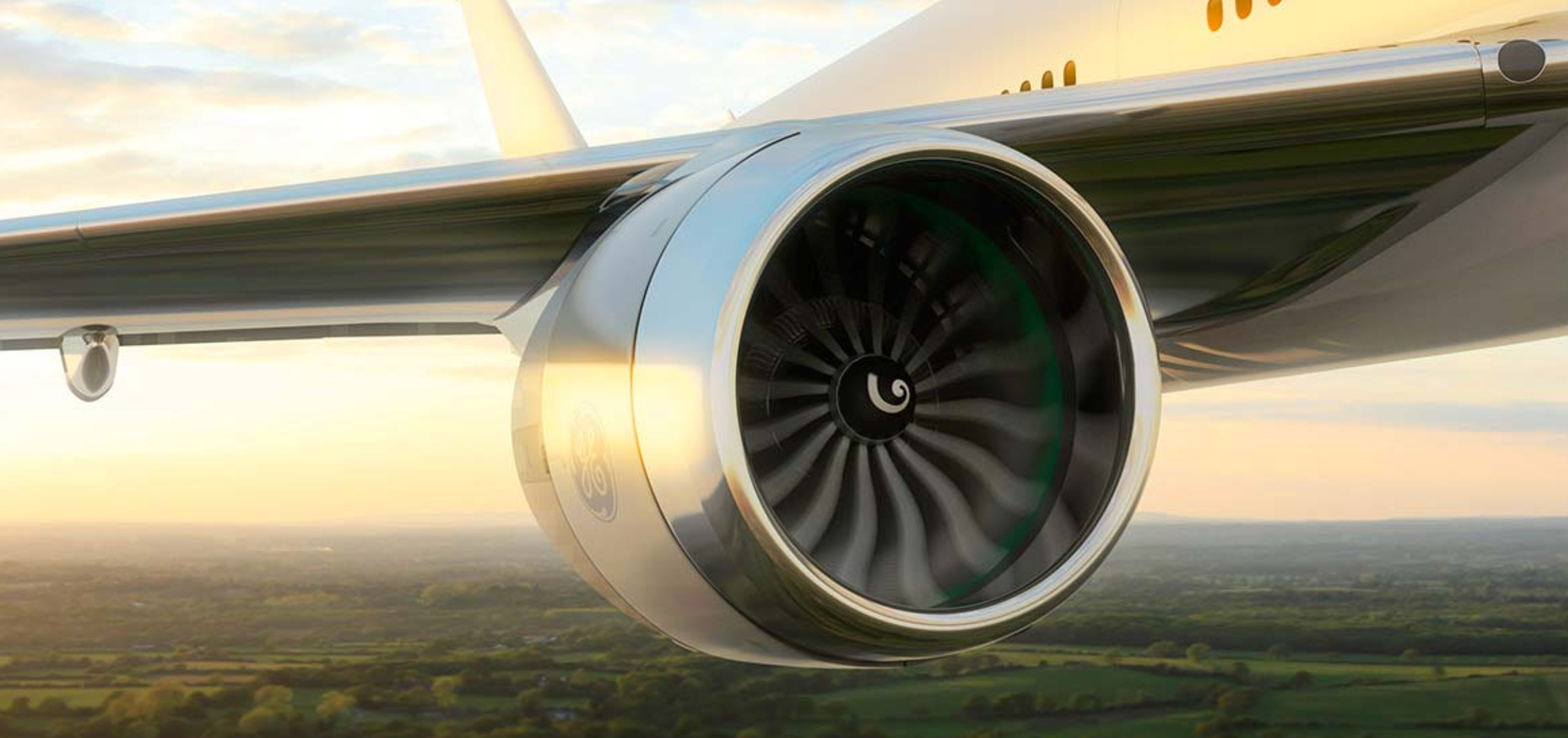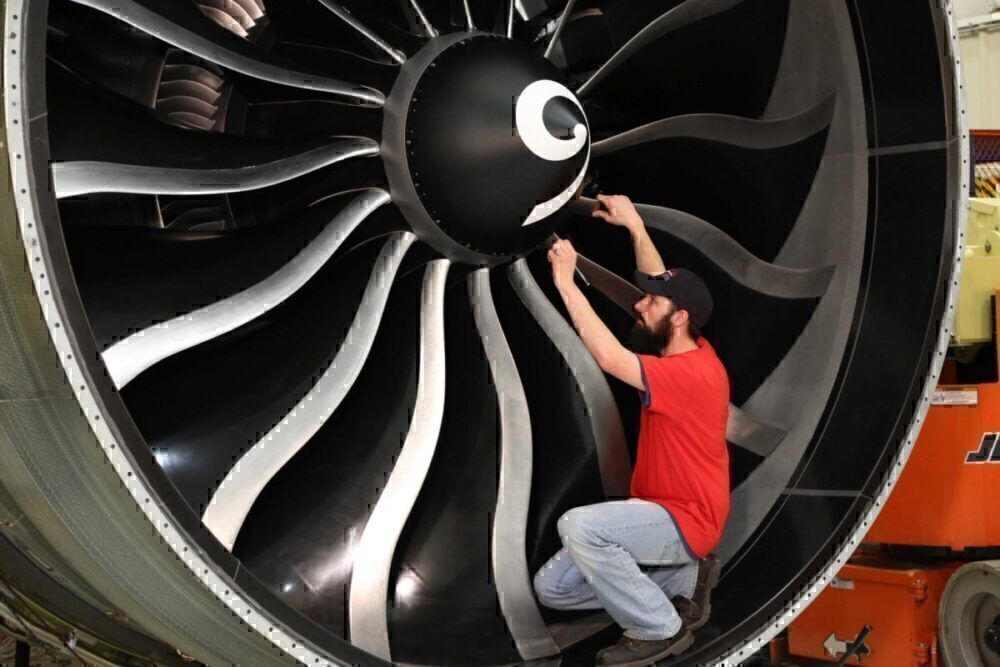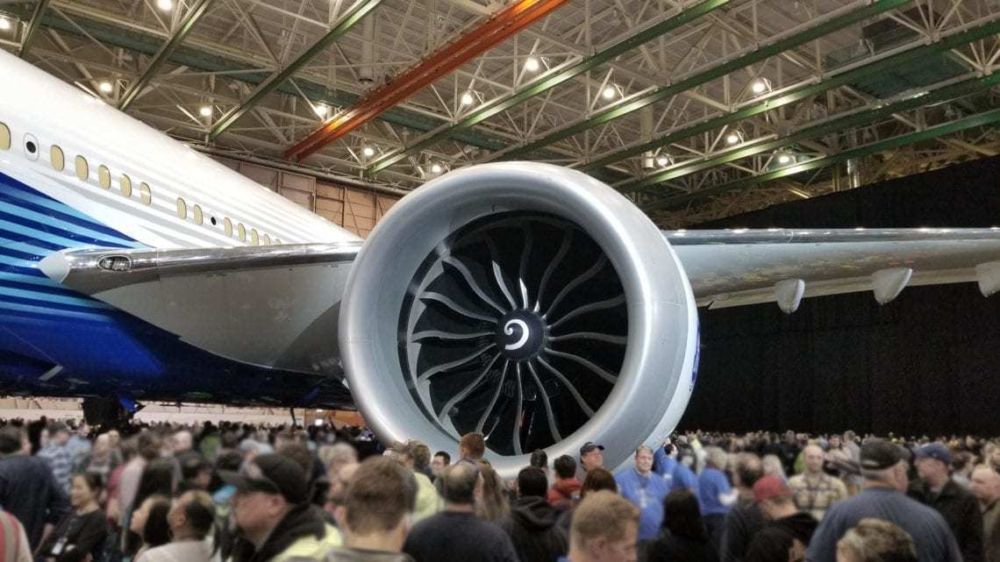It was less than a month ago that GE Aviation attained FAA (Federal Aviation Administration) certification for its GE9X engine. The most fuel-efficient jet engine the company has ever produced, the power plant will be used on the new Boeing 777X family of widebody aircraft. Let's take a closer look at this high-tech creation and what it's capable of.
GE9X specifications
Here is what we know in terms of GE9X specifications:
- Thrust: 110,000lbf (490kN)
- Front fan diameter: 134 inches (3.4 meters)
- Fan blades: 16 (carbon fiber composite)
- Overall pressure ratio: 60:1
- Bypass ratio: 10:1
- High-pressure compressor ratio: 27:1
Interestingly, the GE9X holds the Guinness World Record title for thrust, officially known as 'the most powerful commercial aircraft jet engine (test performance).' During the record-certification process, the engine reached a thrust of 134,300 pounds, surpassing the record held by GE’s GE90-11B engine of 127,900 pounds, set in 2002.
“The GE9X engine incorporates the most advanced technologies that GE Aviation has developed during the last decade and is the culmination of our commercial engine portfolio renewal...While we didn’t set out to break the thrust Guinness World Record title, we are proud of the engine’s performance, which is a testament to our talented employees and partners who design and build outstanding products for our customers.” - David Joyce, president and chief executive officer of GE Aviation.
Improvements over the GE90
With about 20 years of technological development above and beyond its predecessor, the GE90, the GE9X has an impressive list of improvements over the older engine as well as other competitors. These include:
- A 10% improved aircraft fuel burn over the GE90-115B
- 5% improved specific fuel consumption versus any twin-aisle engine available
- The quietest engine ever produced by GE*8db margin to Stage 5
- And the lowest NOx (nitrogen oxide) emissions from a GE engine (NOx being a greenhouse gas)
Now FAA certified
The GE9X test engines completed just under 5,000 hours and 8,000 cycles for its FAA certification, which was granted in late September. GE Aviation is continuing further testing and certification, conducting 3,000 cycles of additional ground testing to support Extended Operations (ETOPS) approval.
As its predecessor, the GE90, was eventually granted 330-minute ETOPS certification, we can expect that the GE9X will meet or exceed this level of reliability. Furthermore, with the Airbus A350-1000 and its Rolls-Royce Trent XWB-97 achieving 420-minute ETOPS capabilities, it's possible that we'll see GE Aviation aim to reach similar levels of reliability as well.
Over 600 engines ordered by airlines
GE has received orders and commitments for more than 600 GE9X engines. These include the following numbers of engines (as opposed to aircraft):
- 300 from Dubai-based Emirates
- 200 from Qatar Airways
- 68 from German carrier Lufthansa
- 45 from Singapore Airlines (10 sets for aircraft, with five spares)
- 40 from Japanese carrier ANA (All Nippon Airways)
- 36 from British Airways
While the numbers and their corresponding press releases look impressive, it should be noted that the GE9X is the only engine chosen to power the new 777X family of aircraft. Therefore, airlines may have ordered the new Boeing widebody for several reasons to do with aircraft size and price, but are left without any choices regarding power plants.
What do you think of the GE9X engine? How high of an ETOPS rating do you think it will eventually achieve? Let us know in the comments.



